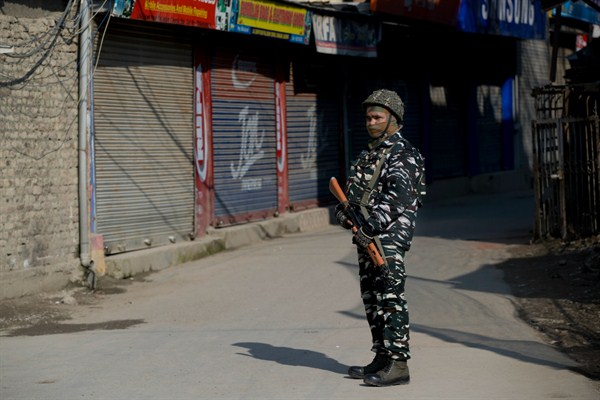In late February and early March, India and Pakistan engaged in a series of aerial skirmishes after a suicide bombing killed 40 Indian security personnel in the disputed territory of Kashmir. The crisis marked the worst escalation between the two nuclear-armed countries in nearly two decades. In an interview with WPR, Avinash Paliwal, a lecturer and deputy director of the South Asia Institute at the School of Oriental and African Studies in London, discusses the longer history of the dispute over Kashmir and what it will take to prevent future crises from escalating.
World Politics Review: Recent tensions between India and Pakistan are often framed as the result of a territorial dispute between two neighboring rivals, but is that the whole story? What other root causes are at play?
Avinash Paliwal: The India-Pakistan rivalry is rooted in communal strains between Hindu, Muslim and Sikh communities that were exacerbated during the British colonial period. These sociopolitical tensions, which erupted into widespread sectarian violence during the partition of India and Pakistan in 1947, shaped the decolonization and identity-formation processes of both countries and deeply informed their views on Kashmir’s status in their respective national identities. For Pakistan, the integration of Muslim-majority Kashmir was important to the “two-nation theory,” that Hindus and Muslims are fundamentally different and should have their own separate countries. This idea was pushed by early Pakistani nationalists trying to establish an independent Muslim state. In India, by contrast, Kashmir’s integration was seen as reaffirming its secular credentials. The fight over Kashmir, then, is not just about territory, but also about people. It is as much a symptom of historically grounded social, political and ideological tensions, as it is a cause of recent bouts of violence, including the one in February.

